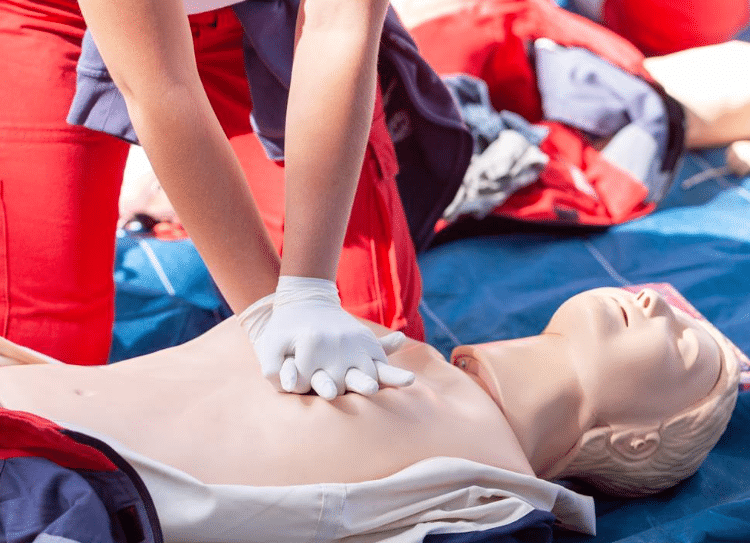The Role of BLS in Health and Social Care

Imagine this: You’re just a few months into your new job as a care worker. You’re starting to build confidence in your day-to-day responsibilities when suddenly, you walk into a resident’s room and find them collapsed on the floor. What do you do next?
The Role of BLS Training
Luckily, you attended a Basic Life Support (BLS) course just weeks earlier, delivered by Care Business Associate Training. Your training kicks in. You remember the key steps: check for danger, assess responsiveness, call for help, and begin CPR or the recovery position as appropriate. Your colleagues respond quickly, and together, you ensure the resident receives immediate and effective support.
Thanks to your training and the team around you, the situation is managed with skill, calmness, and care. But what if you hadn’t been trained? The outcome might have been very different.
BLS Training Applied to Health and Social Care
The care provider ensured that you received the necessary training to perform your role safely and effectively. Basic Life Support (BLS) training is a mandatory requirement for all care staff because it builds competence and confidence in life-threatening situations. It ensures that staff know how to:
- Perform CPR (cardiopulmonary resuscitation)
- Recognise and assist a choking casualty
- Place someone in the recovery position
- Use an automated external defibrillator (AED) safely and effectively.
- Conduct a secondary survey, where required
At CBAT, we deliver BLS training tailored to your service, aligned with the 2021 Resuscitation Council UK Guidelines. Whether you’re running a residential care home, a domiciliary care service, or a supported living facility, our training ensures your staff are always prepared.
Regulation 18 and the Legal Duty of Care Providers
Under Regulation 18 (Staffing) of the Health and Social Care Act 2008 (Regulated Activities) and Regulations 2015, providers must ensure:
“There are sufficient numbers of suitably qualified, competent, skilled and experienced staff to meet people’s care and treatment needs.”
This includes being trained in Basic Life Support, which forms part of a staff member’s core competence. BLS refreshers are typically required annually, not just to renew expired certificates, but also to reflect:
- Updated best practices or legislation
- Changes in policies and procedures
- Introduction of new equipment or technologies
- Outcomes of a Training Needs Analysis (TNA)
Supporting CQC Compliance and Fundamental Standards
Basic Life Support training also supports compliance with the Care Quality Commission (CQC) Fundamental Standards. These ensure that care services are:
- Safe
- Effective
- Caring
- Responsive
- Well-led
CQC inspections are guided by 34 Quality Statements, which set out what good care looks like in practice. These statements help assess whether staff are well-trained, supported, and able to deliver safe, effective, and person-centred care.
Investing in quality training helps you demonstrate that you take your responsibilities seriously and meet the expectations set out by regulators.
The Wider Impact: Building a Confident, Competent Care Team
When staff feel prepared to handle emergencies, it creates a more positive working environment. It builds trust and resilience. Confident, well-supported staff are more likely to stay, helping you reduce turnover and retain experienced professionals.
Our Basic Life Support (BLS) Train the Trainer course provides your in-house staff with the knowledge to deliver high-quality training across your organisation.
Whether you’re looking to upskill new starters or refresh the knowledge of experienced staff, our Health and Social Care training ensures your team is confident, competent, and always prepared.
Ready to Refresh Your Team’s BLS training?
Whether you’re looking for initial BLS training, annual refreshers, or a bespoke course that fits your service’s needs, CBAT can help.
Contact us today to book your next course or request a free Training Needs Analysis.